About the Workshop
But I am dreaming the biggest disabled dream of my life—dreaming not just of a revolutionary movement in which we are not abandoned but of a movement in which we lead the way. With all of our crazy, adaptive-deviced, loving kinship and commitment to each other, we will leave no one behind as we roll, limp, stim, sign, and move in a million ways towards cocreating the decolonial living future. I am dreaming like my life depends on it. Because it does.
The integration of disability justice and HCI could bring promising opportunities for solidarity and justice, as well as knowledge production and design. However, little is known about the potential roles disability justice can play within HCI, raising questions such as: How to integrate accessible methods and collective access into research practices? How does disability intersect with other marginal identities? This leads to several concerns, e.g. injustice/unfairness and further oppression within technology building spaces.
In this one-day workshop, we will bring together people doing research to address ableism that takes a justice-oriented and intersectional perspective. We will use this workshop to enrich critical HCI scholarship and challenge western, white, and ableist hegemonies within the field and beyond. This workshop will also be used as a means to go beyond accessibility, acknowledging how disability is present in all facets of HCI, and calling in a diverse range of scholarships to critically reflect on disability justice within their work. Together, we will explore several critical questions, including:
- How does disability intersect with other overlapping systems of oppression (racism, anti-Blackness, sexism, classism, colonialism, etc) and how does it inform the technologies we design?
- How does disability justice expand and complicate human-centered approaches in HCI research?
- What might disability justice look like in HCI?
- How can we as HCI researchers create and maintain a practice of care in creating access?
Schedule
The workshop will be entirely virtual on April 22, 2022 (9 AM-1 PM EST). We will host the workshop over Zoom and utilize breakout rooms for small group discussions. We will tailor the workshop based on access requirements, which may include sign language interpretations, captioning or other required services.
The four-hour workshop will take place on Zoom as follows:
Opening and Introductions (1 hour)
We will open with the workshop’s motivation, agenda, and introduction to the organizers. We will then facilitate an Introduction round for workshop participants to get to know each other, their research interests, and expectations for the workshop.
Breakout Groups (1 hour 20 minutes)
We will then organize participants into breakout groups based on submissions and pre-workshop discussion on Discord. At least one organizer will attend each of the breakout rooms to serve as a facilitator and note taker. Each organizer will create discussion points to provoke conversation.
Breaks (10 minutes each)
Although we will encourage participants to take a break whenever they need, we will schedule two 10-minute breaks between sessions to allow participants time away from the workshop.
Reflection and Closing Remarks (1 hour 20 minutes)
The breakout groups will reconvene as a larger group to share their reflections and learnings with each other. We will close out by identifying opportunities for further discussion and collaboration beyond the workshop.
| Duration | Activity |
|---|---|
| 1 hour | Introductions |
| 10 minutes | Break |
| 1 hour 20 minutes | Breakout Groups |
| 10 minutes | Break | 1 hour 20 minutes | Reflection and Closing Remarks |
Submissions
Below is a list of accepted submissions, some with a link if the author(s) have consented to it being shared.
"Untitled" by Alexandria A
"Auditing Automated Hiring Processes" by Alex Atcheson and Karrie Karahalios
"Dreams, Nightmares and Realities of Disability Justice and HCI research in the Global South" by Victoria Austin, Maryam Bandukda, Giulia Barbareschi, Deb Cameron, Lynn Cockburn, Jane Davis, Silvia Fajardo, André Freire, Sane Gaytán, Cathy Holloway, Louis Mbibeh, Dafne Zuleima Morgado Ramirez, Ellen Murray, Julius Nganji, Soraia Prietch, Pranjal Protim Borah, P.V.M Rao, Lesley Sikapa, Sachin Tanwar, and Kanika Tuteja
"Co-creating Access and Reflexivity in HCI Research with Embodied Audio Description" by Harshadha Balasubramanian, Clarice Hilton, and Alexandrine Royer
"Deformation Gesture-based Non-visual Drawing Tool" by Pranjal Protim Borah and Keyur Sorathia
"Justice in interaction design: preventing manipulation in interfaces" by Lorena Sánchez Chamorro, Kerstin Bongard-Blanchy, and Vincent Koenig
"Statement of Interest" by Li-Neishin Co
"Untitled" by Hazel Dixon
"DREEM: An Emerging Method for Building a Meaningful Disability-Related Research Agenda" by Jared Duval, Leya Breanna Baltaxe-Admony, Sri Kurniawan, and Kathryn E. Ringland
"Creating a Lab with a Culture of Care" by Tessa Eagle, Leya Breanna (Bre) Baltaxe-Admony, and Kathryn E. Ringland
"Automated Alt Text and Disability Justice: Tensions and Goals in Accessible Computing" by Emory J. Edwards and Stacy M. Branham
"Statement of Interest" by Emily Ehrensperger
"Exploring the Tensions between Disability Justice and Human-Computer Interaction Research" by Frank Elavsky
"Disability Justice As Research Method: Building the Research Worlds We Want to Inhabit" by Kim Fernandes
"Is it too much to ask?" The challenges of learning and researching accessibility" by Leandro Soares Guedes
"Statement of Interest: Disability Justice in HCI" by Harvard Business Publishing
"Lessons of Access from Critical Disability Theory" by Stacy Hsueh
"Dismantling Ableism and Ageism in Spiritual Care and Connection with Machine Intelligence in Minecraft" by Maria Insa-Iglesias and Erin Raffety
"Designing the Future of Equitable Transit in Kampala" by Lynn Kirabo
"The future of virtual conference access" by Kelly Mack and Jennifer Mankoff
"Time to think about time" by Emma McDonnell
"Expanding Disability Justice in HCI: Considerations of Holistic 'Lived Experience'" by Tamanna Motahar and Jason Wiese
"Practical Interaction Approaches: Supporting the use of 3D Printed Models by People who are Blind or have Low Vision" by Ruth Nagassa
"Dreaming Disability Justice" by Mauli Pandey and Vaishnav Kameswaran
"Community workshops as open-source accessibility" by Isabela Presedo-Floyd
"No Such Thing as Normal: Exploration and Opportunities for Neurodiversity in Research" by Erika P. Sam and Serena Hillman
"Dreaming of Research by and for Mentally Disabled People Working Together to Navigate the Psychiatric System" by Anastasia Schaadhardt
"Dreaming disability justice in Smart City projects" by Laura Scheepmaker, Mark Melenhorst, Timothy Geesing, and Beril Sirmacek
"The Power Dynamics of Design For and Design By People With Disabilities" by Ushnish Sengupta
"Empowering Disabled Graduate Students and Beyond: Critical Views on Future Directions for Research" by Kristen Shinohara
"Position Paper at the Intersection of Disability Justice: Socioeconomic Status and Mood Disorders" by Alicia K. Williamson
"Position Paper for CHI 2022 “Dreaming the Disability Justice” Workshop" by Zeynep Şölen Yıldız
Dreaming Disability Justice Submission by Ji Su Yoo
"Untitled" by Luis Zayas-Garin and Andrew McPherson
Organizers
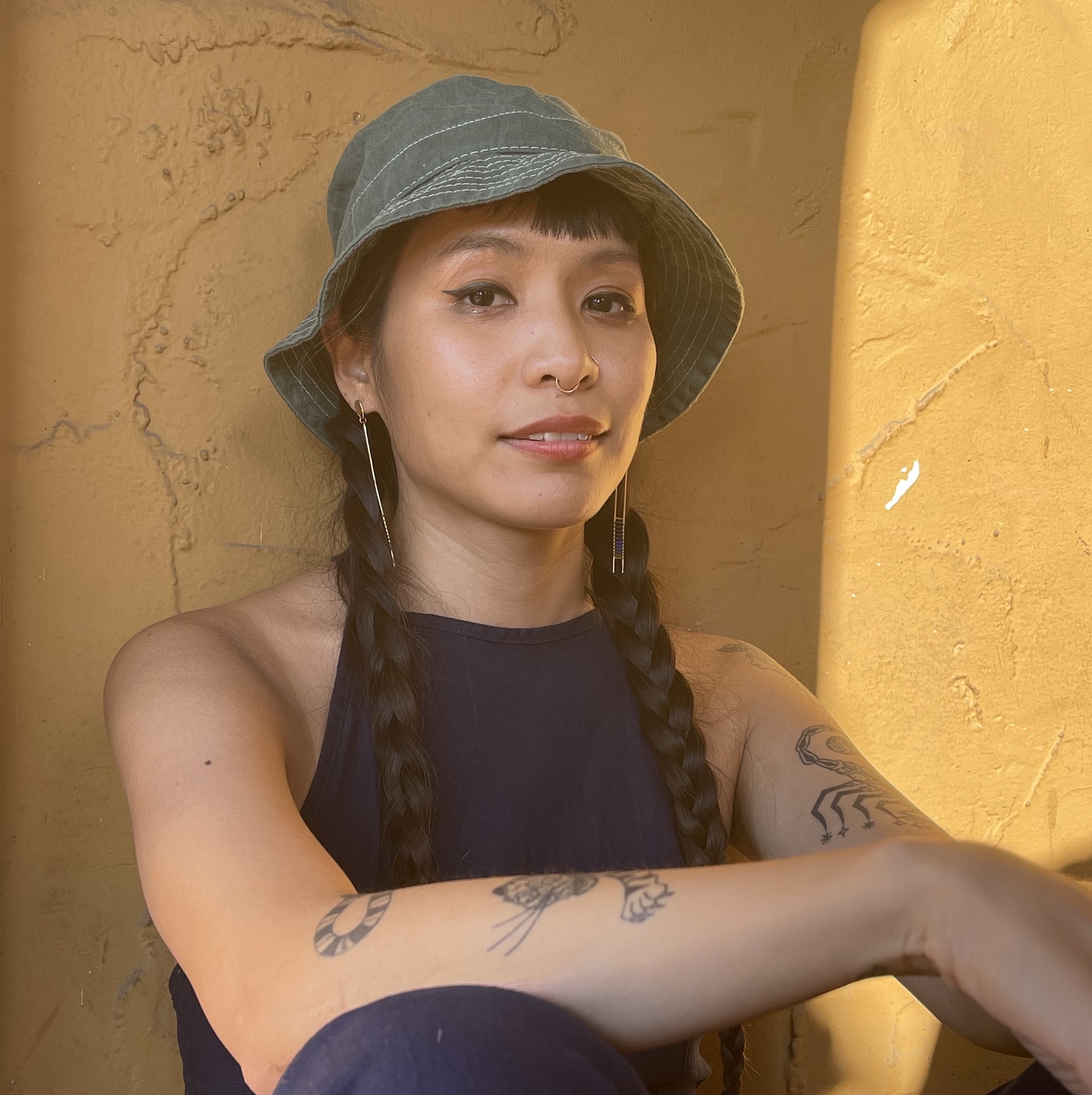
Cella M. Sum is a PhD student at Carnegie Mellon University’s Human-Computer Interaction Institute. Her research focuses on technology, labor, disability, and care infrastructures. Drawing from postcolonial, feminist, and critical disability perspectives,she examines the politics of care in relation to technology and design. Using community-based participatory design methods, she works with affected communities to co-create more just alternatives.

Rahaf Alharbi is a PhD student at University of Michigan. Rahaf explores questions around AI/ML, privacy, power, disability studies, accessibility, and more broadly, human-computer interaction. Drawing from a disability justice lens, Rahaf centers the imaginaries and perspectives of disabled people in the development, design, and refusal of emerging technologies.
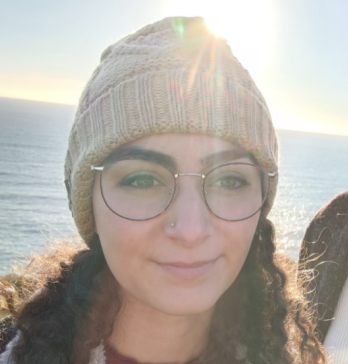
Franchesca Spektor is a PhD student at the Human-Computer Interaction Institute at Carnegie Mellon University. Her research focuses on the ways that technological systems and market forces construct socially valuable bodies. She seeks to challenge dominant discourses around disability, sexuality, and expertise through community-driven design methods.
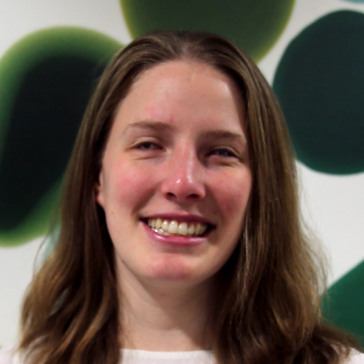
Cynthia Bennett is a postdoctoral researcher at Carnegie Mellon University’s Human-Computer Interaction Institute. Her research concerns the intersection of power, disability, design, and accessibility. She positions the lived experiences and creativity of people with disabilities as starting points for developing accessible and justice-oriented applications of AI and sociotechnical systems. She is also a disabled scholar. Disability justice guides her to center access in her research groups and when she develops design activities and research methods.

Christina Harrington is an Assistant Professor in the HCI Institute at Carnegie Mellon University. Her research focuses on design research to support health and racial equity among groups that have been historically marginalized groups based on race and class. Her research leverages community-based participatory design methods to address social deficits and technology access.
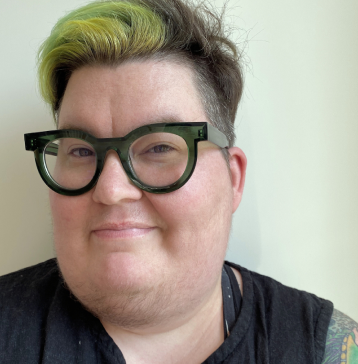
Katta Spiel is an FWF-Hertha-Firnberg scholar at TU Wien (Austria). They research queer and crip perspectives on technologies with a specific focus on the perspectives of neurodivergent and non-binary/inter* folks. Their most recent work investigates the potential of wearable computing technologies to counteract body norms in technological design.
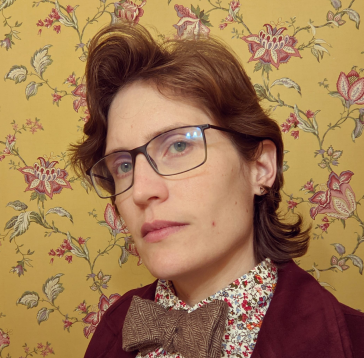
Rua M. Williams is an Assistant Professor of User Experience Design at Purdue University. They apply inquiry from Critical Disability Studies and Science & Technology Studies scholarship in the critique of oppressive research and design practices in the field of HCI. Their current research projects focus on the ethical reform of researchers through counterventional methods – leveraging the testimony and design expertise of marginalized people to intervene on the technosolutionist drives that target disabled and “underserved” populations as problems in need of intervention.
Resources
Accessibility
- Adobe’s resource center for PDF accessibility
- Plain Language Action and Information Network Guide on Plain Language
- PDF Techniques for WCAG 2.1
- SIGACCESS Guide on Creating Accessible PDFs in Microsoft Word
- SIGACCESS Guide on Describing Figures
- SIGACCESS Guide on Making an Accessible ACM Conference Paper
- SIGACCESS Guide on Making an Accessible Presentation
- SIGCHI Guide to an Accessible Submission
- SIGCHI Technical Requirements and Guidelines for Videos
- WebAim Guide on Creating Accessible Word Documents
- WebAIM Guide on PDF accessibility